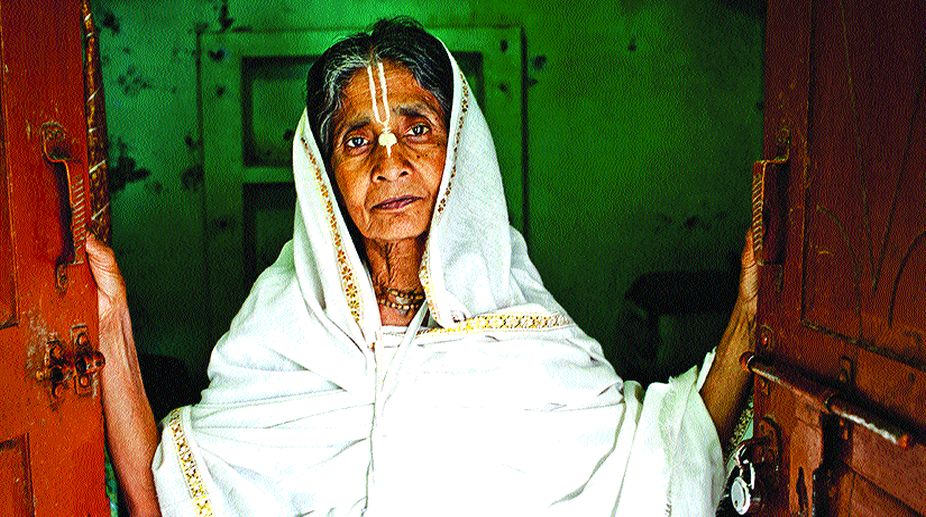Vrindavan finds mention in epics like Ramayana and Mahabharata as the playground of Lord Krishna. This is where he spent his childhood and performed various unfathomable miracles. The land still holds a spiritual aura and a profound religious charm but a darker, less-attractive side also haunts the city. Thousands of widows have been making their way here. With figures rising every year, the land of Krishna is now also known as "the city of widows". Cast out by their families, or simply alone in the world, some travel hundreds of miles to get there. And nobody quite knows why.
Mostly, the surrendered souls in Vrindavan are from Bengal. The glories of Kashi and Vrindavan are a part of religious culture and to die in Vrindavan is a goal of Vaishnavas, male or female. For someone who believes in the spiritual glories of Vrindavan, there is no substitute and this is one of the important factors for the continuous rise in the number of widows flocking to Vrindavan. Also known as "Dharm Nagari", this city is the spiritual abode of Hindus. And driven by the force of spirituality and compassion, the widows are not barred from entering the city either by the locals or the authorities. The widows find their shelter either in old-age homes, streets or "Bhajan Ashrams".
Many unwritten stories can be found in Bhajan Ashrams, one of them near the Rang Mandir in Vrindavan. The pictures appear in dark shades, where one can easily find some widows lamenting their pitiful conditions and some dancing and chanting the name of Krishna, trying to find peace and solace. Speaking about Bhajan Ashrams, Madan Das, one of the caretakers of the ashram informed, "The ashram opens at seven every morning. Widows from nearby areas come here and they are served tea and Rs 5 as a token from God. They all sing and pray to God with Mai." The latter takes care of their health and other conditions. The routine bhajans at the ashrams are conducted by "Mai", an old senior lady, who resides in Bhoot Gali, in a quarter allotted to her by the government with a monthly pension of Rs 2,000. The keertan ends at 7 pm and the ladies are given Rs 7 as token, which is generally collected through donations and charities.
"To arrange food and clothes for the ladies is not possible for us as the donations in small ashrams are very low. But some old-age homes, which are supported by NGOs and government, do provide them. The number of widows rise every year, reaching 15,000-20,000 this year," said a keeper of the ashram.
Old-age woes
"After my sons got married, they and their families did not treat me well and I was often left to starve. I suffered many indignities because of my situation, most of which were by my very own family. When they started beating me, I left my home because I could not bear the dishonor shown towards me by my own sons and my daughters-in-law. I came to Vrindavan four years ago and have stayed in dilapidated hovels ever since. To survive, I worked as a domestic help and am forced to beg at times for food. My day starts with praying and ends with praying. After all, I am left only with, what is called 'hope'," narrated a widow, who refused to divulge her name.
The untold stories of the widows are a testimony to Vrindavan's glories. In the modern world, there is, under the country's laws, no place for mistreatment of women at any stage of life. Today's sensibilities advocate equality of women, they also demand that they be safe and protected ~ in this it is no different from the ideal expression of traditional Hindu society. Women at each stage of life were meant to be protected but after taking a glance at the ordeals widows have to go through in the twilight of their life, the picture of a perfect society looks tainted. There are many things, which need to be improved for the betterment of the current plight of the widows in Vrindavan but right now it is not the society but only God who is their keeper in the city.











